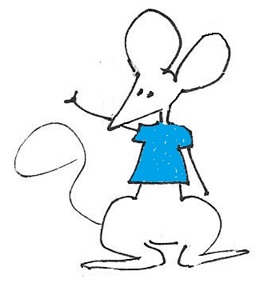These memories hopefully give a snapshot (kid's eye view) of what a small town county newspaper office was like in the 50s - The Duplin Times.
We had a large flatbed press, and under the press was a pit similar to the pits in some car service stations. The pressmen went down there to ink the press, and you didn’t go near there if you didn’t want to get printer’s ink on you from the large barrels of ink. That ink smelled good. They say you get printer’s ink in your blood when you work on a newspaper. I don’t know about that, but I had black smudges on my feet a lot. If I had on sandals, I took them off and it still looked like sandals were on my feet!
The Duplin Times had two pressmen – Amos Quinn and Mose Cooper. When it was time to “go to press,” Mose climbed up onto the printing press and stacked the huge pages of newsprint onto a platform that was near the ceiling. These sheets of newsprint were large enough to hold four pages of a newspaper, called a “four-page spread.” Mose stood up there inserting one page at a time into the jaws of the press. Static electricity built up, and sometimes Mose would lift a page so that it got sucked up to the ceiling. What a sight!
The flatbed press had a huge roller that rolled forward, pressing newsprint down on an inked bed of type. Then it rolled back and did it again. One page at a time, the newspaper got printed. After all the pages were printed on one side, Amos and Mose flipped them, changed the type in the press bed, and began printing the back side of the pages. This created eight pages, so if the newspaper was bigger that week, another batch had to be printed.
My sister Beck recalls the day it “pied.” (This is pronounced like Pie. It's printers’ slang for a mass of type jumbled together.) Mose and Amos forgot to tighten the bed of type. This type was made of about a million thin bars of metal strips about 1.5” tall, as I remember, and just the width of a printed letter and the length of the line of type in the column. There were a lot of them. They were laid out in a frame, line after line, column after column. Then – barring any lapse of sanity – the frame was tightened to hold up against the weight of the huge metal roller. On this particular day, it didn’t go as planned. Mose and Amos rolled the press. The roller moved about half way across the bed of type, pushing all of the type forward. About half of it hit the floor before they realized what was happening. They quickly shut down the press, saving what was left of the type pretty much intact and still in the frame. It was at that moment that our dad walked in. Beck says, “They were all scared to death! All Daddy said was, ‘Put it back together.’” This self-control is what impressed my sister. I don’t think our dad was typically that calm!
After printing the newsprint sheets, Amos stacked them on the folding machine. He inserted them one at a time, and the machine’s wheels and belts pulled the page through intricate turns, cutting the four-page sheet into two two-page sheets, then folding them and trimming off the edges. The strips of newsprint fell to the floor in a pile, and the piles were moved and piled on top of piles until there was a great mountain of them to play in.
It all sounded like an orchestra. A LOUD orchestra! The roller on the press rolled forward and backward, the gears turned, large metal rollers rolled smoothly then clanked and rolled again. The folding machine’s multitude of belts and tiny rollers created their own rhythm as they moved the newspapers through the machine. One machine clanking and the other clicking, and I think there must have been some compressed air somewhere because I remember some swooshing sounds, too. It was a concert that played way into the night. I played in the paper strips until I could play no more. Then I would try to sleep in them, but I’d sink to the bottom, like my dad said he did in a feather bed, and end up on the cold concrete floor. So I moved over to the mailbags with their odor of newspaper and canvas. Delicious when you can’t keep your eyes open! A cord ran through grommets to seal the bags at the top and was secured by a clamp – which made for some interesting lumps in a pile of bags. But other than that, those canvas bags felt as soft as a mattress to my tired body. Pretty soon, someone would need the bags and I’d have to find a new place to sleep.
I suppose you're sleepy too, by now. I'll wait until another time to tell you about the race to get the newspapers on the bus and the night rides through the county.
Subscribe to:
Post Comments (Atom)








No comments:
Post a Comment